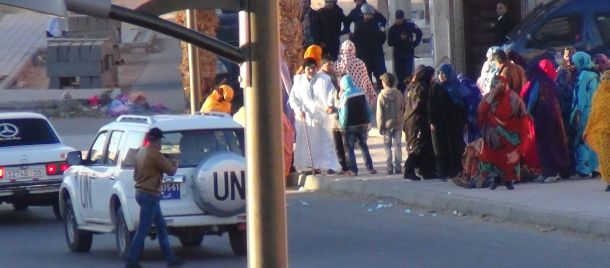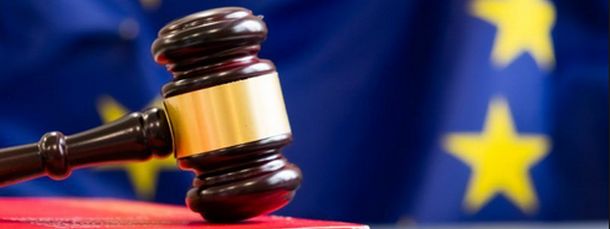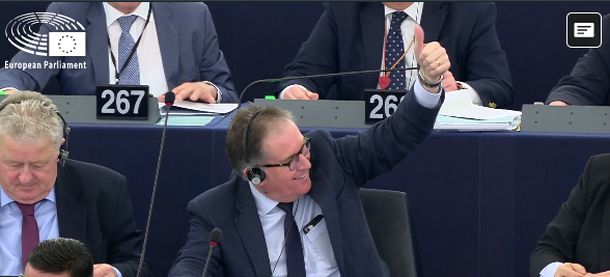Occupied Sahara: EU undermining Human Rights on Human Rights Day

Today, the European Parliament decided to back up the EU-Morocco fisheries agreement, opening for fishing in the waters of Western Sahara, a territory of which large parts have been occupied by Morocco since 1975. "A sad day for international peace and human rights" states WSRW. The deal was inked on the 1 year anniversary of the Nobel Peace Prize - and on the International Day of Human Rights.
Published 10 December 2013
Photo above: Saharawis demonstrate against EU plans to fish in Western Sahara, 7 Dec 2013. More than 20 injured.
"Today's decision by the European Parliament flies in the face of the people of Western Sahara. The Saharawi have under international law the right to be heard on economic activities taking place in their land under occupation. The EU has today neglected those rights. All EU's rethorics of Human Rights Day today proves to be shallow", states Erik Hagen, chair of Western Sahara Resource Watch (WSRW).
204 parliamentarians voted against the agreement, while 310 voted for. 49 abstained.
The owners of the stocks are either living under brutal Morocan occupation, or in refugee camps in Algeria. More than 100 UN resolutions call for their right to self-determination. No state recognise Morocco's claims to Western Sahara.
Last weekend, a Saharawi demonstration in the capital of Western Sahara, protesting the EU’s plans to fish in occupied waters, was violently dispersed by the Moroccan police. More than 20 were injured. The situation is growing ever more tense, as more and more Saharawis are increasingly frustrated with the EU’s consistency in choosing Morocco as a partner for business in their land, while turning a blind eye on the gross and systematic human rights violations that Morocco perpetrates in the territory.
Instead Morocco will be paid for 40 million € per year in exchange for access to non-Moroccan waters.
Apart from violating international law and disrespecting a people’s fundamental right to self-determiantion, the protocol is also bad business for the fish stocks in the area. A Greenpeace report, urged the EU not to approve, of environmental concerns.
News
Here is the EU Council's legal advice on fishing in occupied waters
Before voting on the new EU-Morocco fish deal in 2018, extending into occupied Western Sahara, several EU Member States asked for legal advice that would determine their vote. WSRW today publishes that influential legal opinion, which appears to miss the ball entirely.
05 March 2020
Hans Corell criticizes EU fisheries in Western Sahara
The former Legal Counsel to the UN Security Counsel, Mr. Hans Corell, comments on the EU's fisheries activities in Western Sahara.
20 November 2019
EU Court reaffirms position on Western Sahara
Polisario has a case, but it should be pursued when the time is right, Court implies.
28 February 2019
European Parliament disregards Court and adopts Morocco fish deal
Notwithstanding four consecutive rulings of the EU's highest Court calling such a practice illegal, the European Parliament has just now voted in favour of the EU-Morocco Fisheries Agreement that will be applied to the waters of occupied Western Sahara.
12 February 2019


